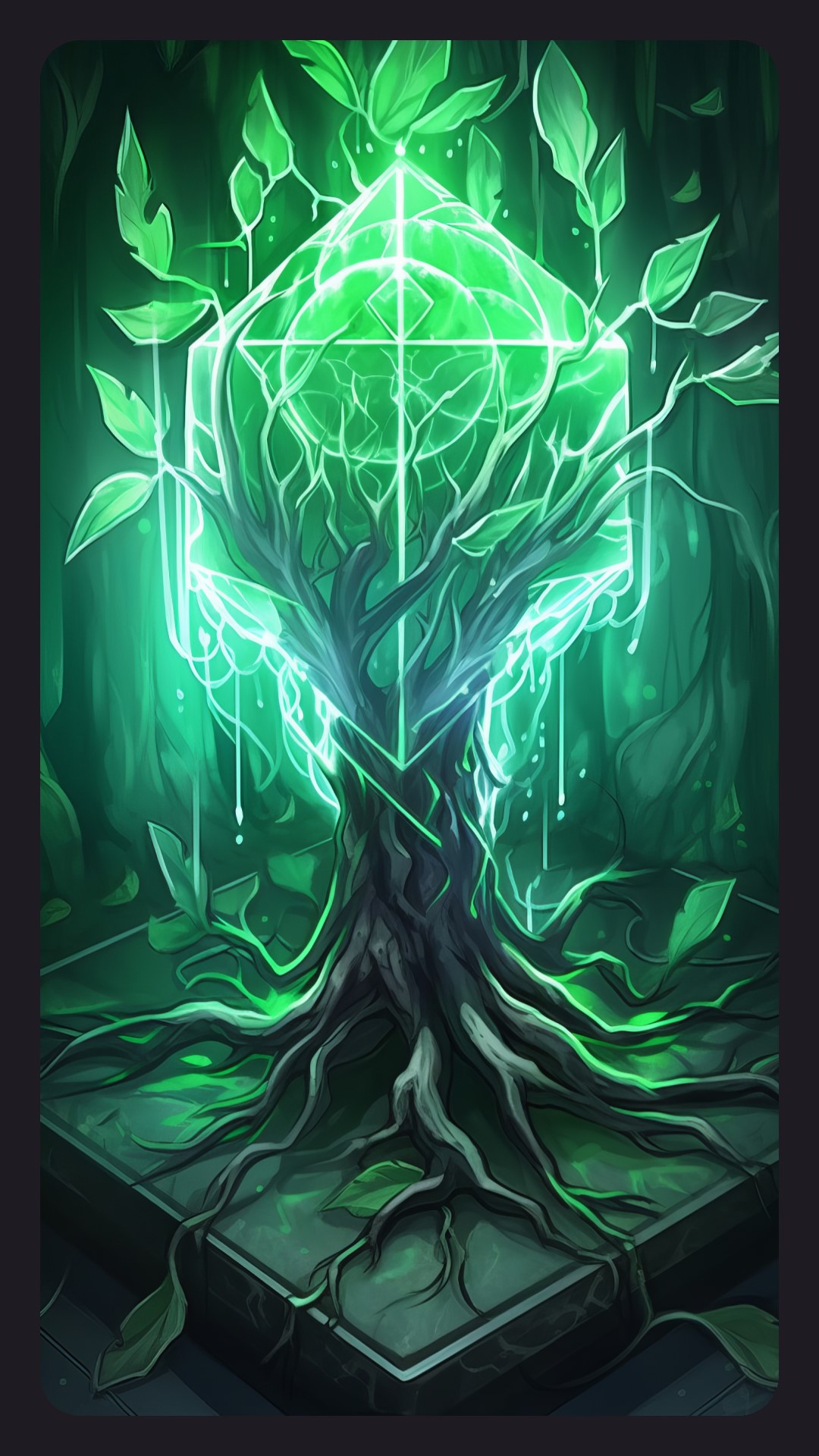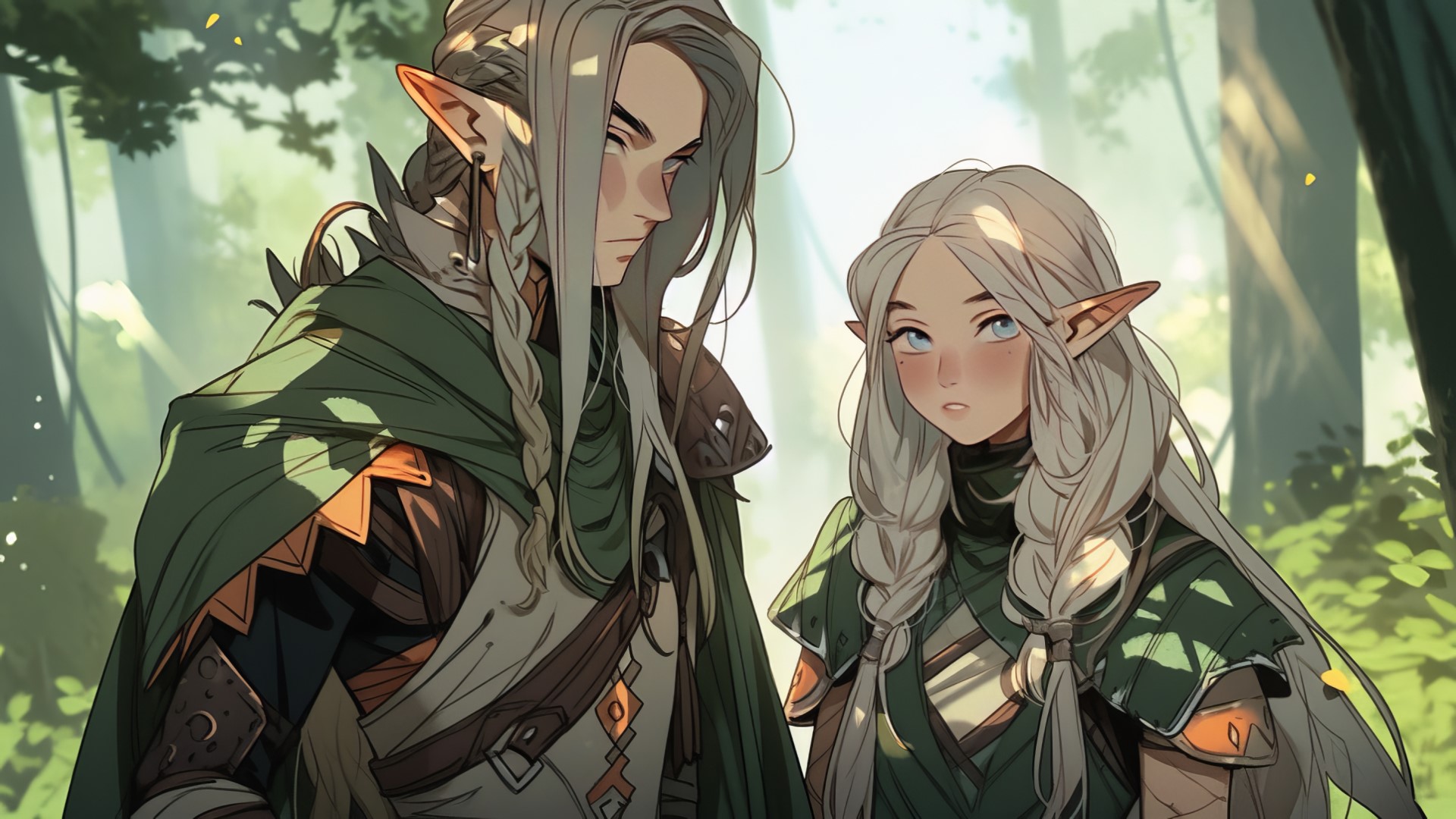Elf
'Elves pursue constant change to strive against stagnation.' - Stereotyping Human (But Accurate)
The Humanus Elvaras species, referred to as an 'elf,' is a sentient creature similar to humans in stature and physiology. A higher-than-average proportion become wizards, with greater potential for prestige and capability due to their elongated lifespan. However, others tend to call elves 'shifty-ears' for their tendency to change their positions, preferences, and tactics (as well as for their pointed ears). The cultural differences between Xanthun elves and Aemark humans has led to many misunderstandings and conflicts over the centuries.
 Elves exist as a subset of the humanoid classification, having bipedal locomotion and sentience. In contrast with orphics, dwarves, and gnomes, there are few physically traits differentiating elves from humans. The typical subject is lighter of muscle and frame as well as fairer in hair and skin tone, but there is enough overlap such that humans could appear as elves and vice versa. Ears are the only obvious visual distinction between the two species (elf ears being sharper).
Elves exist as a subset of the humanoid classification, having bipedal locomotion and sentience. In contrast with orphics, dwarves, and gnomes, there are few physically traits differentiating elves from humans. The typical subject is lighter of muscle and frame as well as fairer in hair and skin tone, but there is enough overlap such that humans could appear as elves and vice versa. Ears are the only obvious visual distinction between the two species (elf ears being sharper).
Anatomy and Morphology

Elf by SK Kage (via MidJourney)
Perception and Sensory Capabilities
Contrary to stereotypes, elves do not have hawk-like vision or the ability to see darkness. Nor do they intuitively sense creatures near them. These myths are perpetuated within Aemark education (willfully or not) and give rise to anti-elven sentiment. Elves are more dexterous than humans (and extraordinarily quiet and stealthy scouts), which is the likely source of the aforementioned mythical characteristics.Growth Rates and Life Stages
Compared to humans, elves live a seemingly unnaturally long life, extending into centuries. The longest lived ones on record expired after their fifth century, but the usual lifespan lies between 250 and 300 years of age. Although, in early life, they develop at a similar rate to humans, reaching maturity in their late teens and 20's, though it is believed elves require more time for mental and emotional growth. Elven citizens in the Aemark Kingdom often exhibit anti-establishment tendencies in this stage of their life, contributing evidence to this theory.Magical Aptitude
Elves possess aptitude for magic and, therefore, may become wizards. Because of their extended lifespan, elven wizards are highly regarded and frequently achieve mastery in multiple disciplines. Although not conclusively researched, some scholars hypothesize that elves are naturally born with larger mana reserves given the prevalence of magical ability among them. Unlike humans, who statistically tilt towards evocation, elves are often attuned to conjuration, particularly transformation and transmutation. The elven propensity for change (see Elven Culture) also results in creative uses of magic. For instance, the foremost theorists in the magical community are elves (though wizards grumble that they never finish anything).Elven Culture
When Ulysses Senelnlaesal Xavier discussed elves, he commended their rapid technological and societal innovation, but scoffed at their disregard for history. They, apparently by nature, eschew the human preference for tradition. When given a choice between a new technology or methodology and the existing one, they consistently select the new. This leads to markedly different advancement. While it is unknown from whence this characteristic rises, the practical effect is a systemic state of flux within elven communities and especially in the Xanthun Empire. While pockets of practiced doctrine or tradition exist, a traveler visiting a Xanthun city, even a regional capitol, may find everything from streets to districts to socioeconomic structure changes when they next visit. The shifting cultural foundations are dizzying to an outsider, but elves adapt rapidly through them and thrive in the chaos. However, the fluctuations also lead to recurring problems in infrastructure and economy. Massive and frequent construction projects require a constant influx of material. Demand for goods varies wildly in a single year, causing farmers to abandon crops and animals that have fallen out of favor. The proclivity to test new technologies entails high mortality rates due to the lack of centralized oversight. Governments are altered or replaced quickly enough that diplomatic ties with other nations may reverse overnight, stressing Aemark ambassadors. Overall, these variations impose a significant tax on top of what is actually required to sustain elven society.Elven Colonies
These cultural patterns are broken by some elves engaging with other humanoids. They may envy the merits of slower innovation. As such, emigrants establish small, semi-independent settlements. While these are technically under the jurisdiction of the Xanthun Empire, they are dismissed as a curiosity by the government and mostly ignored. Over time, colonies are typically integrated into the nearest nation as part of the populace, but some resist. One such example is Aeleatir, now known as the Elven Conclave, conquered in 640 PoA by the Aemark Kingdom.Customs and Quirks
Humans interacting with Xanthun elves rarely know how to properly introduce, carry, and end a conversation without immersing themselves in the current fashions and trends. Ambassadors to Xanthun are afforded some leeway, but even the best stumble into misunderstandings and utter hasty apologies. In fact, the government created a department devoted to informing ambassadors and merchants of shifting Xanthun culture to ensure diplomacy and trade occur without incident. (Elves from colonies ordinarily stabilize their development. Therefore, most commoners, who never encounter Xanthun natives, need not worry about bewilderingly complex cultural standards.) Separately, elves acquired a reputation for sleeping late from their longer sleep cycle compared to other species. Some scholars theorize the extra rest contributes to a greater lifespan, but this hypothesis is not supported with evidence. Nonetheless, they generally wake at least an hour later than the average human. One characteristic endemic to elves from Xanthun and elsewhere, is their practice of anthropomorphizing objects. The purpose is unclear, but they assign humanoid characteristics to things such as boats, buildings, trees, and so on. Further, they may treat these as a person and develop a familial bond to them. Strangely, many elves keep animals without practical reason, providing a creature shelter, food, water, and attention for no apparent benefit.Scientific Name
Humanas Elvaras
Lifespan
250 to 300 years
Average Height
5'8" to 5'11"
Average Weight
120 to 135 lbs.
Geographic Distribution
Aemark Kingdom - Location
Elven Conclave
Xanthun Empire - Location
Humanas Elvaras
Lifespan
250 to 300 years
Average Height
5'8" to 5'11"
Average Weight
120 to 135 lbs.
Geographic Distribution
Aemark Kingdom - Location
Elven Conclave
Xanthun Empire - Location
What the Elf?
Tired of trade deals going south because you waved with your left hand instead of pumping a fist with your right? 'What the Elf?' has got you covered! Our monthly periodical keeps you up-to-date on the latest Xanthun trends! It sounds tiring to be a Xanthun elf. Then again, kinda sucks to be an Aemark elf...
Written by Sheyla Enelladalcol Aeleat
Edited by Shikya Enelladalcol Aeleat
Mindcepts by Ella Enelnasalcol Malric
Edited by Shikya Enelladalcol Aeleat
Mindcepts by Ella Enelnasalcol Malric
and Alvix Tuvar



Comments